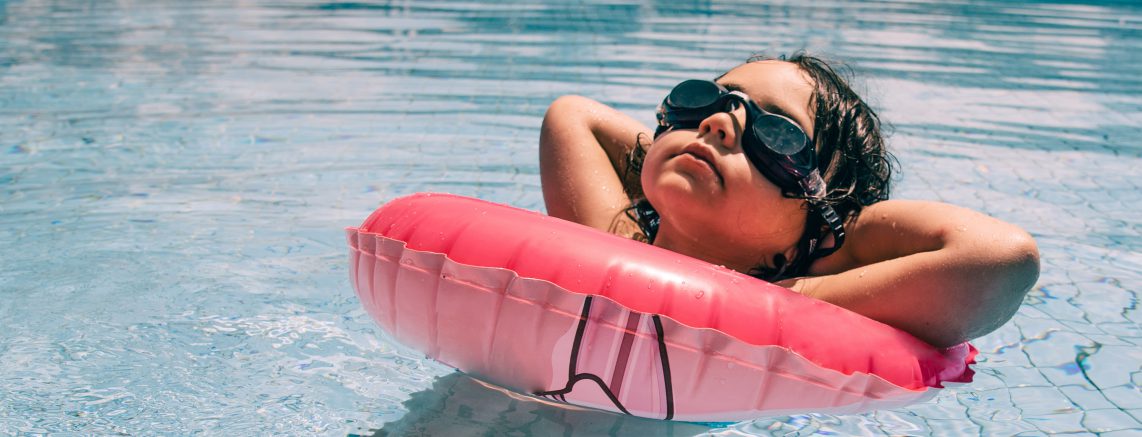Sun poisoning is an extreme case of sunburn — a burn that occurs when ultraviolet (UV) radiation from the sun inflames your skin. It begins with symptoms similar to sunburn, so it often goes unnoticed, leading to more severe symptoms and dangerous situations.
Sun poisoning is most common during the summer months and in sunny areas.
Those who have a lighter skin tone, specifically redheads, are most susceptible to sun poisoning. That’s because their body has not had a chance to produce melanin. Melanin is the pigment that absorbs UV light and darkens skin (tans) to form a protective layer.
Never Miss a Beat!
Subscribe to Our HealthBeat Newsletter!
Thank you for subscribing!
You can now select the specific newsletters you'd like to receive.
You are already subscribed.
Subscribe to more newsletters in our email preference center.
Sorry, an error occurred. Please try again later.
Get Healthy Tips Sent to Your Phone!
What Are the Symptoms of Sun Poisoning?
The main symptom of sunburn is a burning “rash” where the skin reddens, dries up, and peels off. More severe symptoms of sun poisoning include:
- Confusion.
- Dehydration.
- Dizziness.
- Fainting.
- Fever.
- Headache.
- Large blisters.
- Nausea or vomiting.
- Rapid heart rate.
- Shallow breathing.
- Swelling.
It can take fewer than 15 minutes to get a sunburn. Any prolonged time outside could result in severe sunburn or sun poisoning. The short-term negative effects of sun poisoning show themselves for the next four to seven days. More severe long-term effects extend beyond the first week.
Sun poisoning symptoms can last anywhere from two to three days, or they may persist for weeks. If you experience any of these symptoms, seek immediate medical attention. If not treated early and properly, sun poisoning can increase the risk of developing skin cancer.
What Is Sun Poisoning Rash?
Sun poisoning rash, also known as sun allergy or sun rash, can result from sun poisoning or too much exposure to the sun. Sun rash is a very itchy, widespread red rash. Small bumps, resembling hives, also can develop.
Blisters also can be a sign of sun poisoning. Typically, blisters are small, white bumps filled with fluid, with swollen red skin surrounding the area. These blisters can be extremely painful and itchy.
How Can Sun Poisoning Be Prevented?
Sun poisoning and sunburn can be prevented by following these steps:
- Avoid the sun between the hours of 10 a.m. and 2 p.m.
- Reapply sunscreen every two hours or after swimming.
- Wear sunscreen with an SPF of at least 30.
- Wear sunglasses with UV protection and protective clothing, such as hats.
Increased risk of sun poisoning
A pre-existing condition can be the cause of sun poisoning. Conditions such as lupus and eczema can cause sun sensitivity, increasing the likelihood of sun poisoning occurring.
Polymorphous light eruption (PMLE)
A special type of sun poisoning is polymorphous light eruption (PMLE). h is a skin reaction to the sun for people who aren’t used to intense sunlight. This mostly affects fair-skinned individuals who live in northern climates.
Medications that cause sun sensitivity
Some of the most common medications known for causing sun sensitivity are:
- Acne medications: retinoids.
- Antibiotics: doxycycline, tetracycline, and ofloxacin.
- Antidepressants: doxepin and tricyclic.
- Antifungal treatments: griseofulvin.
- Antihistamines: promethazine and diphenhydramine.
How Is Sun Poisoning Treated?
If you have mild sunburn or sun poisoning, a few home remedies can help lessen the pain:
- Apply cold compresses made of equal parts milk and water, or infused with Burow’s solution. These can help soothe the skin. Aloe vera gel can serve as an alternative.
- Avoid the sun until you’re well, and take precautionary measures to avoid a similar situation.
- Hydrate and take ibuprofen to manage the pain.
- Use cool (not cold) water when bathing. Avoid scented items like lotions, bath salts, oils, and perfumes because they may react negatively with the burnt skin.
Treating sun poisoning rash is very similar:
- Apply a cold compress using diluted water, apple cider vinegar, milk, or baking soda.
- Apply a natural soothing agent such as aloe vera or coconut oil.
- Leave the cold compress on for 30 to 60 minutes and repeat as needed.
- Take pain relievers if necessary or if the pain persists.
- Use an anti-itch cream to protect your skin. If itching worsens, your doctor may need to prescribe an antibiotic.
If you are experiencing sun poisoning, sunburn, or a sun rash, it is best to avoid the sun.
If you experience severe sun poisoning symptoms, seek medical attention immediately. Warning signs include fever and chills, upset stomach, headache, confusion, faintness, or dehydration.
Editor's Note: This article was originally published on , and was last reviewed on .
About Urgent Care
Sometimes you need care right away, with no time to wait for an appointment. That’s where UPMC Urgent Care comes in. We offer prompt treatment for illnesses and injuries seven days a week, with no appointment necessary. With locations throughout Pennsylvania and Maryland, you can find immediate care close to you – even if your doctor’s office is closed. Our services include treatment for minor injuries and illnesses, physicals, prescription filling, and flu shots and immunizations. Wait times for minor injuries and illnesses are usually shorter than the Emergency Department, and we accept most major insurance. Visit our website to find a location close to you.
